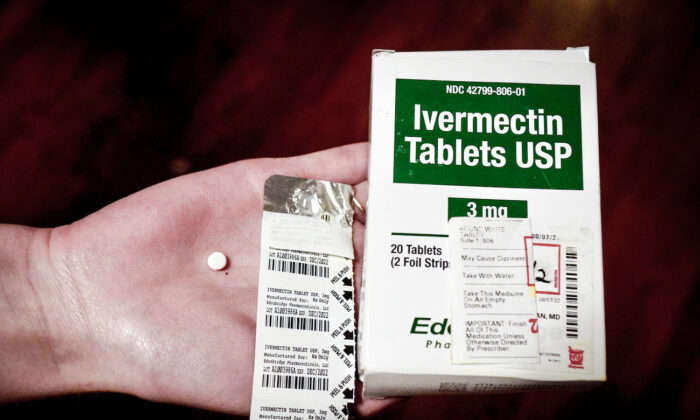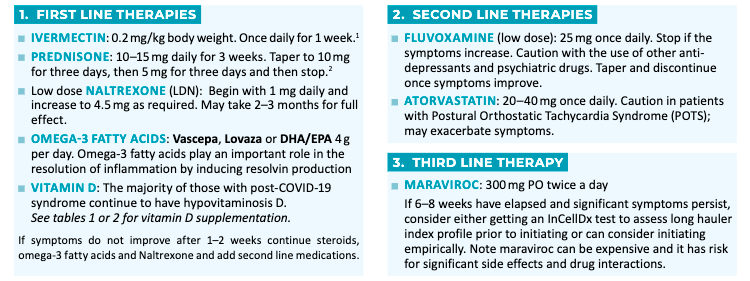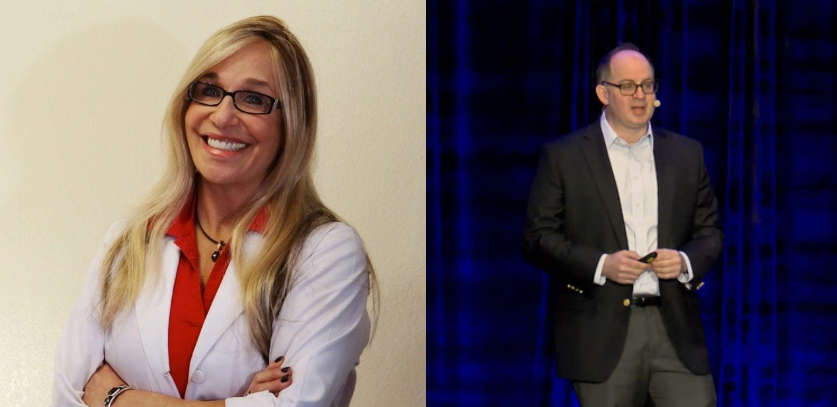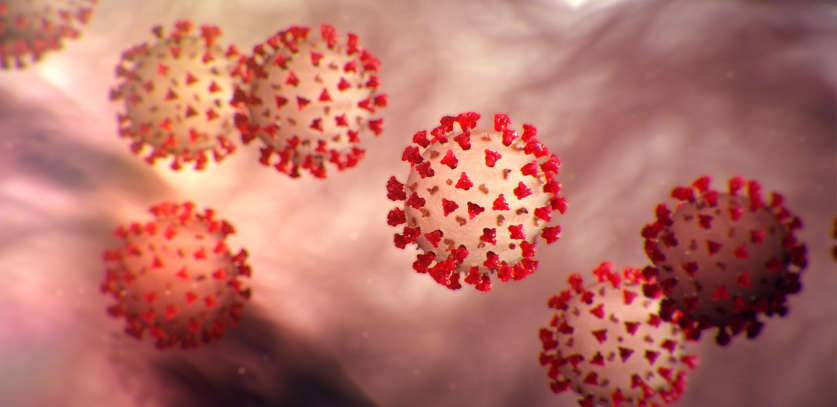
Early Treatment and Proper Hydration Key to Preventing Long COVID Symptoms: Dr. Keith Berkowitz
As posted on The Epoch Times, Feb 23, 2022.
Symptoms of long COVID may be prevented with early treatment and proper hydration, according to Dr. Keith Berkowitz, an internist and founding member of the Front Line COVID-19 Critical Care (FLCCC) Alliance.
Long COVID—also known as long-haul COVID, chronic COVID, and post-acute sequelae of SARS-CoV-2 infection—is a condition where people experience ongoing, recurrent, or new COVID-19 symptoms for weeks to months after an infection or administration of a COVID-19 vaccine. Symptoms of long COVID are seen after prolonged exposure to the spike protein.
SARS-CoV-2 is the scientific name for the CCP (Chinese Communist Party) virus that causes COVID-19.
Berkowitz, who has been treating COVID-19 patients since the pandemic began, says that he used to see more female patients with long COVID and now sees both male and female patients equally, but less in those who received early treatment with FLCCC’s I-MASK+ protocol.
“Most of the people that have had early treatment, we’re seeing much less incidence of long COVID in that group,” Berkowitz told The Epoch Times.
FLCCC’s early treatment protocol centers around ivermectin for its potent anti-inflammatory and anti-viral effects against COVID-19. Other readily available and inexpensive federally approved drugs are also used, including supplements like vitamins C and D, and zinc.
The National Institutes of Health (NIH) says there is insufficient evidence to recommend for or against the use of ivermectin for COVID-19, although a meta-analysis of 15 studies (pdf) concluded that "Moderate-certainty of evidence finds that large reductions in COVID-19 deaths are possible using ivermectin. Using ivermectin early in the clinical course may reduce numbers progressing to severe disease."
In addition to early treatment, Berkowitz says that keeping hydrated with liquids that are slightly "higher in mineral [salt] level," particularly intravenous (IV) fluid, may also prevent symptoms of long COVID.
"Actually giving intravenous fluid really is a game-changer to get the body back to [what] I call a state of equilibrium, right? Where it's at normal," Berkowitz said. "So if you're constantly depleted, your body has to work so much harder."
Without enough water and other fluids, the human body cannot function normally. And when an individual is chronically dehydrated, Berkowitz says chicken soup, or using mineral packets or Himalayan salt is better than plain water if access to IV fluid is not available.
Governmental health authorities have been slow to recommend early treatment for COVID-19 as they continue with the same messaging for people who test positive for the disease: self-monitor at home, keep hydrated, and only go to the ER when breathing becomes difficult.
In January 2022, the Centers for Disease Control and Prevention (CDC) began recommending people at risk of severe disease seek early treatment if they are positive for COVID-19, tweeting "Don't delay, treatment must be started within the first few days to be effective."
If you test positive for COVID-19 & are at risk of becoming very sick, contact a health professional right away to determine if you may be eligible for treatment. Don’t delay, treatment must be started within the first few days to be effective.
— CDC (@CDCgov) February 11, 2022
More: https://t.co/vqxrQrXHSi. pic.twitter.com/eY0Lbb48P3
There are no treatment recommendations from federal health agencies for both acute COVID-19 or long COVID syndrome.
Incidence
It's not fully understood how many people are affected by long COVID or who is most at risk. Congress has provided $1.15 billion in funding to the National Institutes of Health (NIH) to study the long-term effects of COVID-19 and ways to treat or prevent it.
The incidence of individuals experiencing this syndrome "varies from as low as 10 percent to as high as 80 percent," according to the FLCCC.
The United Kingdom's Office for National Statistics (ONS) reported between 3 percent and 12 percent of people having long COVID symptoms 12 weeks after the initial infection. This was based on a survey of over 20,000 people infected with the CCP virus from April 2020 to August 2021.
Berkowitz says that long COVID may be underdiagnosed and underreported, with no clear agreed-upon definition or duration of the syndrome in the medical community, making it challenging for doctors to diagnose it.
In children younger than 18, long COVID is "rare and mainly of short duration," according to the largest nationwide cohort study, involving 37,522 children with COVID-19 and a control group of over 78,000 children.
While COVID-19 disproportionately affects adults aged 65 and older, front-line doctors are finding that is not the case for long COVID, which frequently affects younger adults and people with mild to moderate COVID-19 cases. Even people with no symptoms, or who are asymptomatic, may also experience the condition.
"I have two patients I saw recently that didn’t know they had COVID, they didn’t remember actually having COVID that have kind of the symptoms consistent of long-haul COVID," Berkowitz said. "But when we tested their antibodies, clearly they had exposure at some point."
Some of the common symptoms of long COVID Berkowitz observes are brain fog, headaches, fatigue, painful joints, sleep difficulties, taste and smell disorders, and hair loss. A rapid heartbeat, a more severe symptom, has also been reported in some patients.
Long COVID Treatment Protocol

Berkowitz says that the FLCCC Alliance has updated its long COVID treatment, called the I-RECOVER protocol that was developed in response to the lack of available treatments for the many people suffering from the disorder globally.
The protocol is "based on the pathophysiologic mechanisms of COVID-19 and post-viral illnesses" along with the clinical experiences of physicians treating long COVID.
"Many pathologies have become much more clear, many treatments have become much more clear and evident for how they work... we are almost complete in terms of what is the prescribable protocol or set of drugs that would be useful for this," Dr. Mobeen Syed, chief executive officer of DrBeen Corp, an online medical education, said in a presentation on long COVID on Feb. 2. Syed collaborated with FLCCC to develop the treatment protocol for long COVID.
The repurposed drugs for long COVID were selected to treat the post-viral and post-inflammatory aspects of the disorder.
Berkowitz says that people who receive treatment soon after being diagnosed for long COVID see quick improvements. Even patients who’ve had symptoms of long COVID for months to a year have gotten "80 percent or more better, where they're really able to engage back to their normal life."











